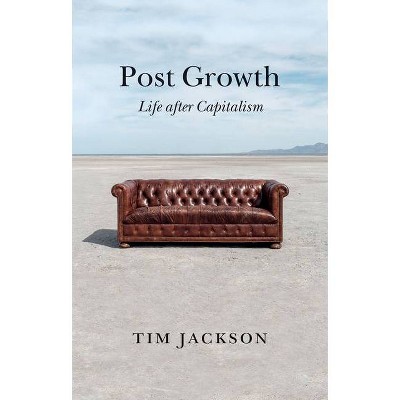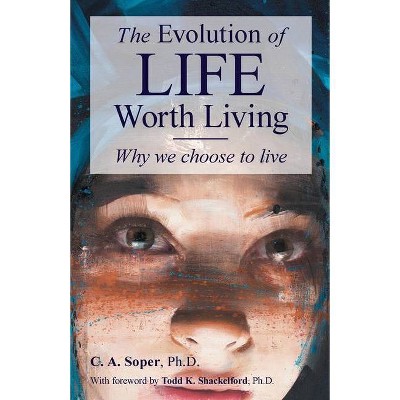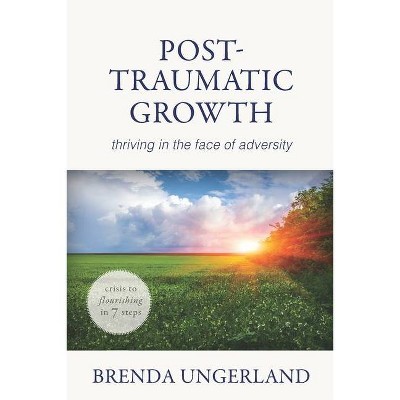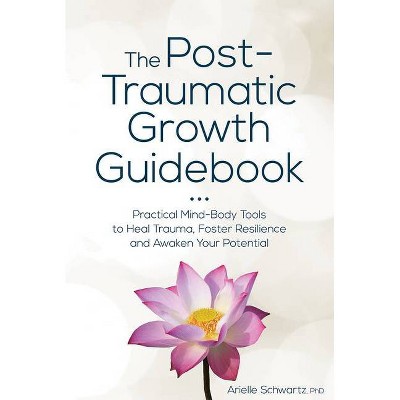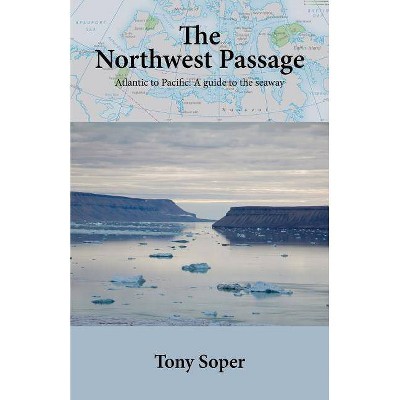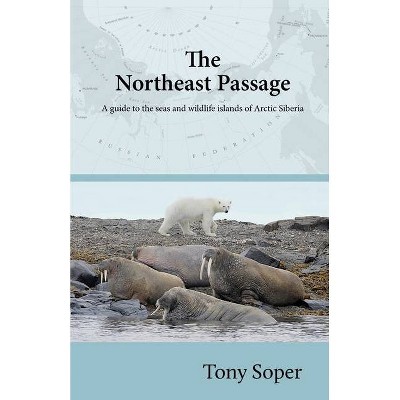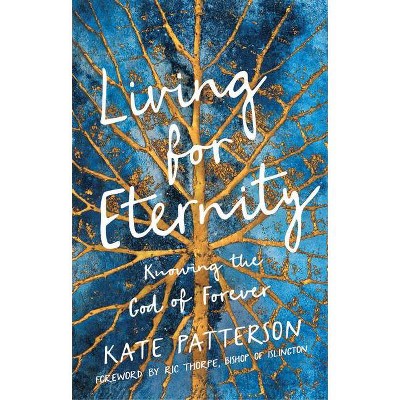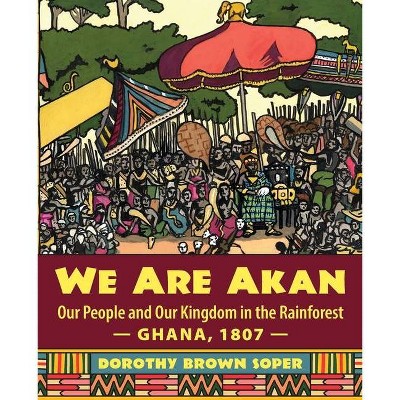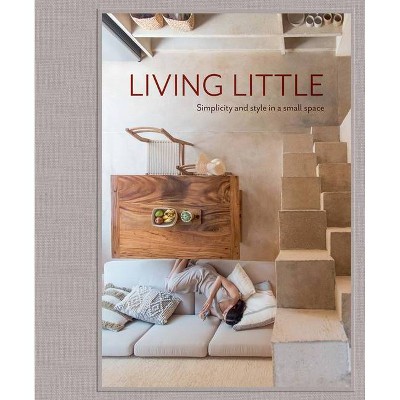Post-Growth Living - by Kate Soper (Hardcover)
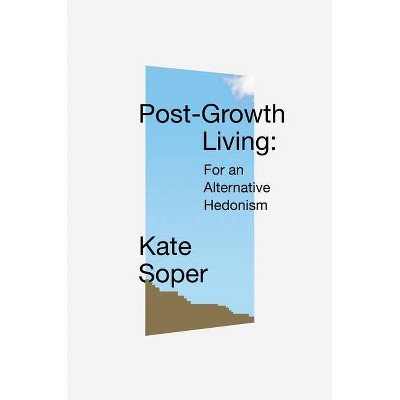
Similar Products
Products of same category from the store
AllProduct info
<p/><br></br><p><b> Book Synopsis </b></p></br></br><b>An urgent and passionate plea for a new and ecologically sustainable vision of the good life.</b> <p/>The reality of runaway climate change is inextricably linked with the mass consumerist, capitalist society in which we live. And the cult of endless growth, and endless consumption of cheap disposable commodities isn't only destroying the world, it is damaging ourselves and our way of being. How do we stop the impending catastrophe, and how can we create a movement capable of confronting it head-on? <p/>In <i>Post-Growth Living</i>, philosopher Kate Soper offers an urgent plea for a new vision of the good life, one that is capable of delinking prosperity from endless growth. Instead, she calls for a renewed emphasis on the joys of being, one that is capable of collective happiness not in consumption but by creating a future that allows not only for more free time, and less conventional and more creative ways of using it, but also for more fulfilling ways of working and existing. This is an urgent and necessary intervention into debates on climate change.<p/><br></br><p><b> Review Quotes </b></p></br></br><br>"There's a piece of the ecological crisis that most consider too hot to handle: consumption. With her signature rigour, Kate Soper picks it up and inspects it and finds that we can do without much of it--indeed, less of it would make us richer human beings. Calmly dismantling the illusion that consumption is pleasure, she shows how drives and needs will be set free when we throw away the commodity form. Some on left bow to the cult of technology and dream of accelerating out into sci-fi space. Others attend to the limits and joys of life and read Kate Soper."<br> <b>--Andreas Malm, author of <i>Progress of This Storm</i></b> <p/>"No task could be more urgent than the one that this book accomplishes so brilliantly. For life on Earth to survive, we have to change not just what we consume, but how we feel about consuming. Guilt and deprivation won't save us. A different kind of hedonism, an aesthetic and sensibility not enslaved by addictive consumerism, are indispensable components of any culture that hopes to survive this century. Alternative Prosperity offers a lucid, profound and pragmatic exploration of these issues, elaborating both on what such a radical recalibration of our sensibilities might entail, and what concrete political measures might achieve it."<br><b>--Jeremy Gilbert, author of <i>Twenty-first Century Socialism</i></b> <p/>"A provocative and necessary book that provides us with the means to rethink consumption, work and sustainable prosperity without losing sight of what makes us feel good."<br><b>--Nick Taylor, <i>Political Economy Research Centre</i></b> <p/>"Kate Soper's vision is necessary and beautiful."<br><b>--Sarah Jaffe, <i>Bookforum</i></b> <p/>"In an overheating world, Soper switches the focus to the philosophy of happiness: the relationships, the time to 'stand and stare' and the reflective autonomy that make life worthwhile. Her <i>Post-Growth Living</i> is a manual for rebuilding the economy with humans in mind."<br><b>--<i>Prospect</i> ("The world's top 50 thinkers 2021")</b> <p/> "I am confident that this singular plea is both fecund and needed, even if, after reading, I am still not sure exactly what 'alternative hedonism' actually is."<br><b>--Jordan Fox Besek, <i>Monthly Review</i></b> <p/>"Captivating ... [Sok-yong] delivers a vivid depiction of some of the historical currents that shaped Korea in the 20th century."<br><b>--<i>Kirkus Reviews</i> (Starred Review)</b> <p/> "Page-turning ... By offering the reader a holistic view of his literal and metaphorical imprisonment, Hwang poignantly illustrates what it means to be exiled by politics, geography, language, and emotional ties."<br><b>--Thúy Đinh, <i>NPR Books</i></b> <p/> "Cinematic, riveting, elegiac ... <i>The Prisoner</i> expands Hwang's literary scope, uniting his life experience with the compassionate realism of his later works."<br><b>--<i>NPR Books</i></b> <p/> "A fascinating account of a life lived for art and campaigns for freedom and justice."<br><b>--Mark Rappolt, <i>ArtReview</i></b> <p/> "Despite having had not so much as a pen to keep a diary, Hwang recalls the techniques he employed and adaptations he made to endure [the] psychological privations and physical discomforts [of prison] in a remarkably high degree of detail."<br><b>--Colin Marshall, <i>Los Angeles Review of Books</i></b><br><p/><br></br><p><b> About the Author </b></p></br></br><b>Kate Soper</b> is emerita professor of philosophy at London Metropolitan University. She has worked as a journalist and translator, and has written extensively on politics, philosophy and feminist issues. During the eighties, she was a prominent activist in the END movement. She is a longstanding member of the <i>Radical Philosophy</i> editorial collective. Her previous publications include <i>On Human Needs, Humanism and Anti-Humanism, </i> and <i>Troubled Pleasures.</i><br><i> </i>
Price History
Price Archive shows prices from various stores, lets you see history and find the cheapest. There is no actual sale on the website. For all support, inquiry and suggestion messagescommunication@pricearchive.us
